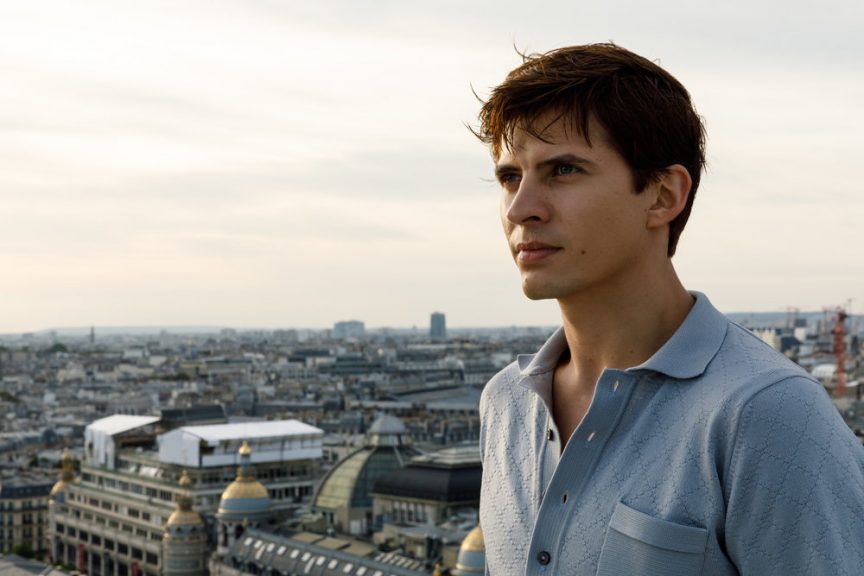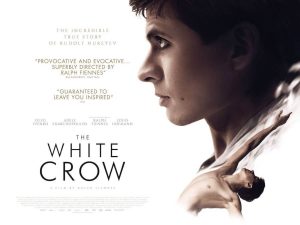Directed by Ralph Fiennes | Written by David Hare, adapting a biography by Julie Kavanagh | 132 min | Crave Plus and Hoopla
What a challenge this must’ve been, to find the actor who could dance anything like Rudolf Nureyev, but also provide the dramatic chops to believably convey his haughty, charismatic persona. Full marks, then, to director Fiennes—who is also here onscreen in the Russian-language supporting role of passive dance instructor Alexander Pushkin—to have chosen Ukrainian novice actor and stellar dancer Oleg Ivenko. If he doesn’t work, the film doesn’t, and Ivenko is electric, bringing heat to Fiennes cool, thoughtful biopic.
From the start Fiennes—who also directed Coriolanus and the Atlantic Film Festival 2013 opening night gala The Invisible Woman—convincingly recreates Paris of 1961 in the weeks before Nureyev defected to the west at age 23—the fashions, the constant smoking, the suggestion of grain in the film stock. Nureyev was there with the Kirov Ballet. His curiosity for art and culture leads him to the Louvre, and out into the Paris nightlife. He befriends western dancers such as Pierre Lacotte (Raphael Personnaz), and a French woman, Clara Saint (Adele Exarchopoulos, as photogenic as she was in Blue Is The Warmest Colour), and gets a taste of what the west can offer. He doesn’t speak French, and she doesn’t speak Russian, so they manage in English, which allows us to read between the lines of their stumbling conversations.
The film also flashes back to Nureyev’s childhood in Siberia, his dance instruction, and his strange relationship with Pushkin and Pushkin’s wife, Xenia (Chulpan Khamatova). A lot of biopics suffer from sprawl, where the effort to tell too much backstory dilutes the focus—Hare and Fiennes’ smartly keeps the flashbacks to fragments, staying largely on those weeks in Paris.
Nureyev is a misanthrope, his rage a defining characteristic easy to relish when he’s brilliant and uncompromising, railing against his Soviet watchdogs, but when he picks on waiters or his new friend, Clara, there’s no doubt he’s an appalling character. Somehow, it never entirely erases our sympathy for him, and that has a lot to do with what Ivenko is able to illicit through a bedrock vulnerability.
In that vulnerability he delivers the key, resonant theme—what Nureyev does when he has a taste of freedom, and what he’s willing to sacrifice to keep it.










